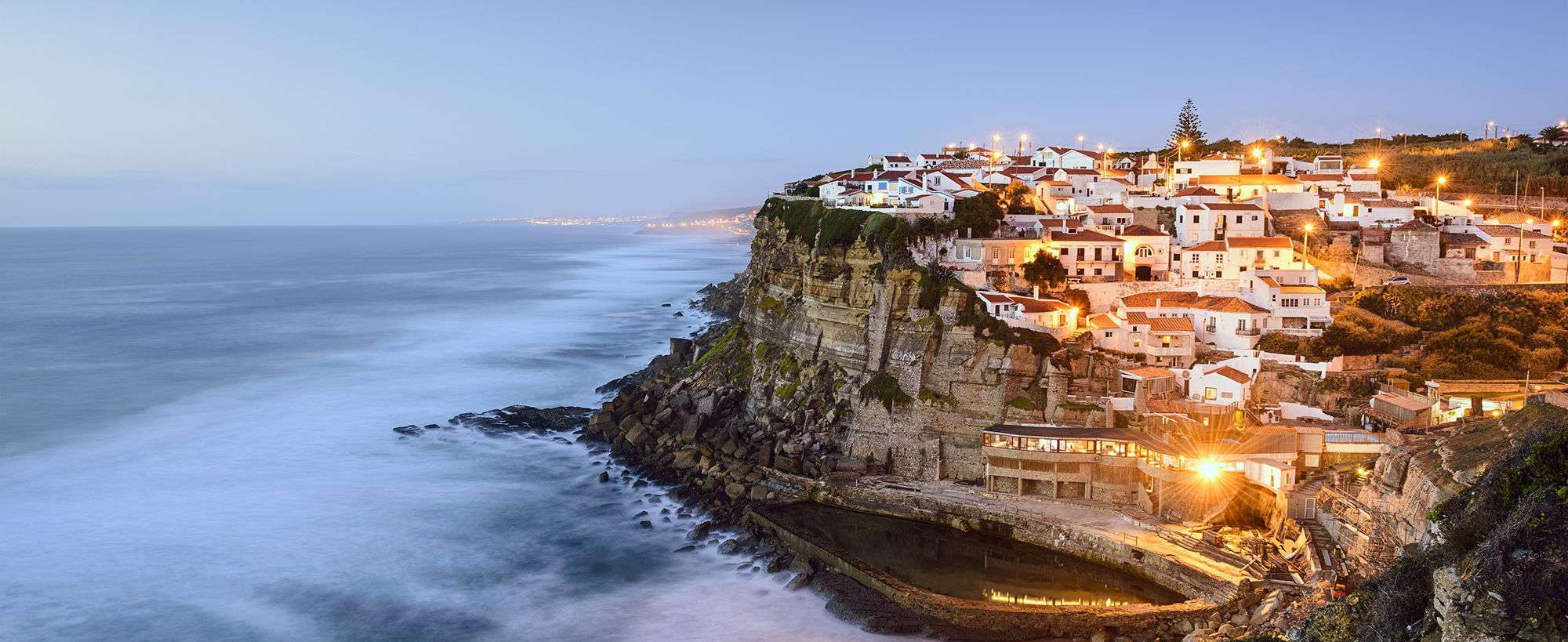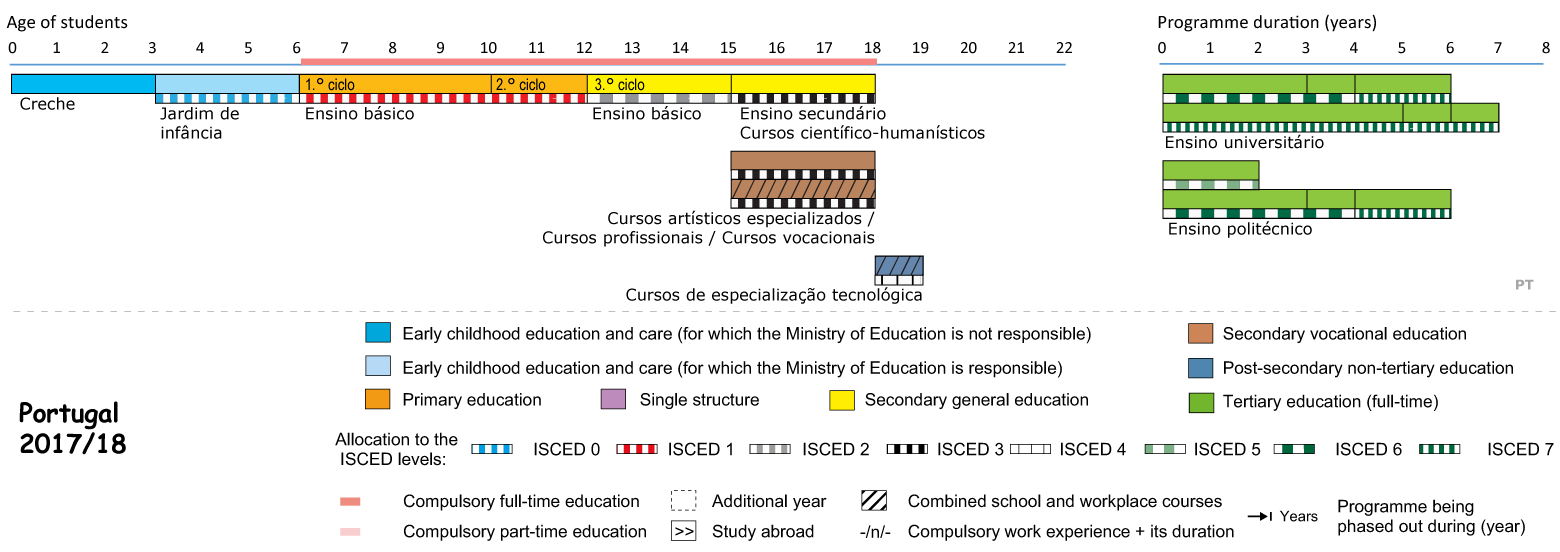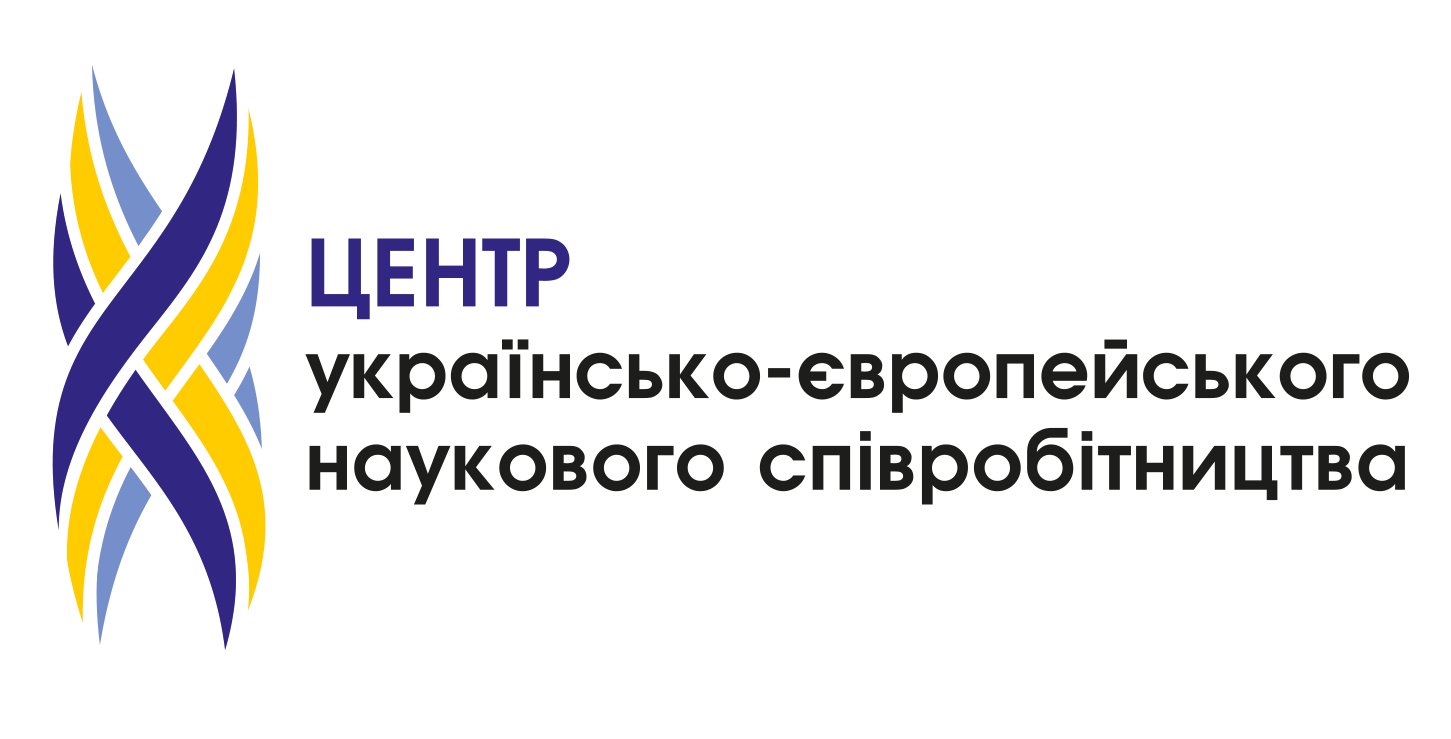 Key features of the education system
Key features of the education system
The Ministry of Education (ME) is responsible for general non-higher education in Portugal.
The vocational and professional paths are the joint responsibility of the ME and the Ministry of Labour, Solidarity and Social Security (MTSSS).
Higher education is the responsibility of the Ministry of Science, Technology and Higher Education (MCTES), which is also responsible for defining and implementing policies affecting the science and technology system. Adult education and training is the joint responsibility of the ME and the MTSSS.
The duties of these three ministries are provided by services that are part of direct state administration, indirect state administration bodies, advisory bodies, and other organisations and entities within state-owned enterprises.
The school network is organized in school clusters which are made up of schools that offer all education levels from pre-school education to secondary education.
The Portuguese education system is very centralized in terms of organization and funding. However, pre-school and basic and secondary education schools have some autonomy, namely at pedagogical level, as well as with regard to timetables and non-teaching staff management.
Higher education institutions enjoy a high level of autonomy.
Compulsory education lasts for 12 years, starting at 6 and ending at 18 years of age or with the conclusion of secondary education (ISCED 3).
Public education is free and universal.
There is a single professional career for teachers of all non-higher education levels, which requires candidates to have a second cycle degree (ISCED 7 –Master’s).
In the Autonomous Regions of the Azores and Madeira, the regional governments, via the respective Regional Secretariats for Education, are responsible for defining the national education policy in terms of a regional plan and managing human, material and financial resources. State-run schools are free of charge.
Stages of the education system
The Portuguese education system is divided in pre-school education (until the start of basic education), basic education (6 to 15 years old) and secondary education (15 to 18 years old).
Attending pre-school education is optional, recognizing the importance of families’ role in children’s education. However, it is universal for children from the year they celebrate their 4th birthday (Law no. 85/2009, 27th August, amended by Law no. 65/2015, 3rd July).
Pre-school Education
Pre-school education covers children from 3 years up to the age of compulsory schooling. There is a public and a private network of pre-school education institutions, which are complementary. The public network is made up of education institutions under the ME and the MTSSS.
The private network is composed of for-profit and not-for-profit education institutions. The former are private and cooperative education institutions, while the latter are private institutions for social solidarity (IPSS).
Pedagogical tutelage is the responsibility of the ME, which is responsible for ensuring the pedagogical quality of teaching in the pre-school education institution network.
The main pedagogical objectives of pre-school education are:
- To promote children’s personal and social development;
- to foster children’s integration into diverse social groups;
- to contribute to equal opportunities;
- to stimulate children’s overall development;
to promote expression and communication development; - to enhance curiosity and critical thinking;
- to provide children with well-being and security;
- to identify maladjustments, disabilities or giftedness and to encourage families to participate in the educational process.
Basic Education
Basic education lasts for nine years and is divided into three sequential cycles. Each cycle should complete and build up on the previous one, within a global perspective:
- The first cycle corresponds to the first four years of schooling;
- the second cycle corresponds to the next two years (these two cycles together make up primary education);
- the third cycle lasts for three years and corresponds to lower secondary education.
The guiding principles of curriculum organisation and management aim to ensure a common general background education for all citizens, via the acquisition of fundamental knowledge and skills that allow further study.
In basic education besides general basic education pupils may attend specialized artistic courses in the areas of music and dance.
Basic education can also be concluded and certified through different paths adapted to the profile and specific characteristics of the students, such as:
- Education and Training Courses;
- Alternative Curricular Pathways;
- Integrated Education and Training Programme.
Education and Training Courses are an opportunity to conclude compulsory schooling via a flexible path adjusted to the interests of each individual, either to pursue studies or become qualified for the labour market.
The Alternative Curricular Pathways are an exceptional measure (created in 2006) to be used when students show no progress in terms of school results, even after the adoption of measures promoting success, whose goals are school re-orientation.
The Integrated Education and Training Programme encourages competencies for citizenship and social, community and solidarity activities, based on practical and differentiated work methodology, in order to promote education and vocational development.
Secondary Education
Secondary education lasts for three years and corresponds to upper secondary education. It is organised into different forms according to different aims, either focusing on access to further studies or preparation for working life. The permeability between these two paths is guaranteed.
This level of education and training comprises different types of courses (Decree-law no. 139/2012, 5th June).
| Education and Training Pathways | School Years/Grades | Age |
| Science-Humanities courses | 10-11-12 | 15-18 |
| Vocational Courses | ||
| Specialised Artistic Courses | ||
| Programme-Specific Courses (Science-Technology courses) | ||
| Education and Training Courses | ||
| Apprenticeship Courses | ||
| Recurrent Secondary Education | Adults |
The different types of provision of upper secondary education have different goals and vocations:
- Science-humanities courses are geared towards further studies in higher education;
- Vocational courses are oriented to the professional qualification of the students in order to enter working life. These courses offer dual certification and provide access to post-secondary education or higher education;
- Specialised artistic courses are geared towards further studies (music) or oriented for both entry in working life and further studies (visual and audio-visual arts and dance);
- Programme-specific courses (science-technology courses) are dual certification courses with specific syllabus provided by some private schools. They offer basic scientific and cultural education, as well as technical training that teaches professional skills;
- Education and training courses (ETC) are an opportunity to complete compulsory schooling through a flexible and tailored course that meets the interests of the students, either to pursue further studies or to obtain specific training to be qualified for working life;
- Apprenticeship courses allow students to obtain a school and professional certification, geared towards the labour market and pursuing studies in higher education;
- Upper secondary recurrent education is geared towards adults who have not benefited from education at the usual age or failed to complete their studies.
Decree Law no. 139/2012, 5th July, also states that, as part of the diversification of training provision, other professional education and training qualification provision can be offered, such as adult education and training courses.The Scientific-humanistic Courses are focused on access to higher education:
- Professional and Vocational Courses – vocational courses which last two school years – are geared towards students’ professional qualification for working life, which also allow access to further studies;
- depending on the artistic area in question, Specialised Artistic Courses are geared towards further study (music) or both entering the workplace and further studies (visual arts, audio-visual and dance);
- courses with specific curriculum offered by some private schools submitted to the Ministry of Education for approval.
Higher Education
Higher education is structured according to the Bologna principles to ensure solid scientific and cultural preparation, plus technical training that qualifies students for professional and cultural life, while developing their capability to innovate and apply critical analysis.
Portuguese higher education system is a binary system that includes the university and the polytechnic systems. Universities are geared towards offering solid scientific training, gathering the efforts and competences of teaching and research units, while polytechnics focus on vocational and advanced technical training for the world of work.
University studies are taught at universities, university institutes, and all other institutions within university education, and polytechnic studies are taught at polytechnic institutes, and other institutions within polytechnic education, and both are offered by public, private and cooperative institutions.
Despite this binary division, there are some polytechnic institutions that are part of universities
Adult Education and Training
Adult education and training provision varies and is geared towards specific aims and target groups:
- Recognition, Validation and Certification of Skills –Processes in the Qualifica Centres involving the recognition of academic and vocational competences acquired by adults and that provide academic and/or vocational certification;
- Basic Competences Training Programme – Designed for adults to acquire basic reading, writing, maths skills and information and communication technologies competencies (ICT);
- Adult Education and Training Courses – These courses aim to boost adult qualifications via dual certification;
- Modular Training – Permit the conclusion of basic or secondary education and the acquisition of academic and vocational competences, in order to return to or progress in the labour market;
- Technological Specialization Courses –These courses are designed to respond to socio-economic needs for middle level staff and provide an alternative for improving young people’s qualification and retraining of the working population;
- Secondary Education Completion Paths – Aimed at those who attended but did not courses whose syllabuses no longer exist or will soon disappear;
- Recurrent education – Designed for adults who have not completed their primary or secondary education at the usual age;
- Portuguese for Speakers of Other Languages – Designed to meet the legal requirement of knowledge of Portuguese language to acquire Portuguese nationality, permanent or long-term residence, as well as to promote proficiency in reading, writing and speaking.
Within the context of adult education and training, the Qualifica Programme was designed for adults whose objective is to improve adult education and training, improving the population’s qualifications and individuals’ employability.
The Qualifica Program is based on a qualification strategy that involves educational and training solutions, as well as a range of tools that promote adult qualification and an extensive network of providers.
As part of this programme, the Qualifica Passport was created as an electronic record of courses already done and guidance for new courses, based on training completed and skills acquired, offering the chance to complete a qualification or obtain others and advance academically and professionally.
At the beginning of 2017, a National Credit System for Vocational Education and Training was also implemented, which allows credit points to be assigned to qualifications in the National Qualifications Catalogue (Catálogo Nacional de Qualificações – CNQ) and other certified training courses, provided that they are registered in the Information and Management System of the Education and Training Offer (SIGO) and comply with the quality assurance criteria in force. This system incorporates the principles of the European Credit System for Vocational Education and Training (ECVET), promoting mobility within Europe.
Structure of the National Education System
Resource: https://eacea.ec.europa.eu/national-policies/eurydice/content/portugal_en









